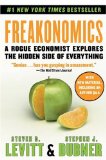Attention: There’s a wager riding on this post. If you’ve done something like this (or know someone who has), please leave a comment with details! Specifically we’re interested in a) how much of the persons OWN money had to be invested, b) what their construction experience was BEFORE they did this for the first time and c) whether they were able to do this part time (did they have another job). Please do watch the comments to see how the wager plays out in the comment (I can almost taste that beer already).
Thanks, Mr. Cheap
There’s always an interest in real estate strategies that don’t require a lot of money. Happy to fill the void, a variety of get-rich-quick-through-real-estate types offer information on bird-dogging, rent-to-own, flipping and other questionable practices. Sadly, these strategies have major challenges (legal, ethical and business) associated with them and are unlikely to provide what the person pursuing them is looking for. An alternative, presented today, is something I haven’t done myself but have heard being done second hand from a number of sources. It’s possible anywhere in the world, but is particularly well suited to Canada (and our taxation laws) and to small and medium sized communities.
The basic idea is to buy a piece of land, verify zoning and get permits and build the house yourself. Do as much of the labour as possible, and anything you can’t do, hire someone to do it for you. Once the house is finished, move into it. Start working on another house. Once this second house is finished, sell the house you’re living in and move into the new house. Repeat as needed.
When I was studying in my undergrad, a friend of mine told me his father did this (and they’d lived in 8 different houses while he was growing up). Apparently this was his father’s preferred form of recreation (he’d finish up at work, then head over to the building site to swing a hammer for a couple of hours each night). A friend of my father’s has just recently stopped doing this (he did it for years and has finally “retired”). He was an electrician, so was in the enviable position that he could do the electrical work himself, and had a number of contacts in the construction industry so he knew the other work would be done properly. He even did this for investment properties (where instead of making a private residence for himself to move into, he built apartment buildings).
I was talking to a woman about this recently, and she said her grandparents did this is Romania (however they did it because it was the only way they could have a house: not as an investment).
Taxation
The large benefit of the Canadian tax code for this type of thing is that we can sell our primary residence and not pay taxes on the capital gains. In contrast, Americans pay tax on this, but can deduct their mortgage interest. Canadians can’t deduct the building materials and expenses of construction, but these should be quite a bit lower than the sale price (so it’s better to get the tax free sale than to get the tax deductions on your costs). Living in the house is an important step in the process (if you just build it than sold it you’d be in the construction business). Obviously you’d want to read up on CRA‘s definition of a primary residence and make absolutely sure each of your “stays” qualified.
Investment
SOME money will have to be put into this strategy, since you’ll have to pay for the land, materials and labour as the house is being built. A construction loan helps with this. Basically you show the lender exactly what you’re going to do, they approve the plans and provide money at each step in the process. This is completely different than the standard process of getting a mortgage, but in some cases it’s possible to convert the construction loan to a mortgage upon completion.
My understanding from people who’ve done this is that being involved in the process, EVEN if just as the general contractor, saves quite a bit of money. Plus, if you decide to live in the house long term instead of continuing with this strategy, you’ll know that it’s a well built home.
Carrying Costs
There will be costs that will need to be paid during construction (such as property taxes and whatnot). Part of what might makes this approach less appealing in a large city would be that these costs and the “opportunity cost” of having a construction site where work proceeds SO slowly (since at times only one person may be working) would undermine any gains. Vandalism and whatnot might also be considerations and could stop this from being worthwhile in a hurry.
Required Knowledge and Ability
The more you know about construction (like the electrician mentioned above), the better off you’ll be. Early on when I first met Mike and his wife, I was very impressed at the scale of renovation they’d embarked on with their house. At the beginning, despite Mike’s engineering background, they didn’t know much about home construction, but launched into some very aggressive plans. The place looked great when they showed me around (I met them after construction was completed). Not everyone would have the energy and willingness to learn how to do the various tasks then actually do them for the amount of time to construct a house (but both are required if you’re going to build your own house).
Why I Wouldn’t Do This
I have pretty close to zero renovation / construction / home maintenance experience. A buddy and I spent the better part of a day anchoring a runner for drapes in the ceiling once (think about two guys off of “The Big Bang Theory” with a drill and you get the picture). If I was serious about doing something like this, I’d obviously work up to it by getting involved with some renovation projects (at home or with friends) first. Hell, someone doing reno work will probably be happy to train you if you’ll do work for them, so it’s a way to benefit both people.
Beyond lack of ability, building a house would be A MASSIVE amount of work. Given that I try to earn a living staring at a computer monitor (or a nice book) and not getting sweaty, this would not be for me.
That being said, maybe others aren’t as lazy as I am. A number of people have built their own houses before, so the information and possibility is out there. There’s also 911 hits on Amazon for “build your own house”.



 A hug: The classic way t0 let someone know “I’m broke, but I care” a hug is perfect for all ages and both genders! As it’s most acceptable with older relatives, you can also push your luck and give this to siblings and friends. Add a kiss or other affectionate act and you can cross that “special someone” off of your list. Not recommended in work environments (especially with your boss).
A hug: The classic way t0 let someone know “I’m broke, but I care” a hug is perfect for all ages and both genders! As it’s most acceptable with older relatives, you can also push your luck and give this to siblings and friends. Add a kiss or other affectionate act and you can cross that “special someone” off of your list. Not recommended in work environments (especially with your boss). Burnt CDs / DVDs: Let people know that when you steal for them, you steal the best! Whether it be bootleg music, tv shows, movies, or even computer software this is the gift that says “I thought about something that would be perfect for you, then downloaded it off of the Internet and burnt it on a $0.10 bit of plastic instead of wasting money getting it at the store.” Edgy and “counter-culture” this tells everyone involved in the gift giving festivities that you’re a good looking rebel who plays by his (or her) own rules!
Burnt CDs / DVDs: Let people know that when you steal for them, you steal the best! Whether it be bootleg music, tv shows, movies, or even computer software this is the gift that says “I thought about something that would be perfect for you, then downloaded it off of the Internet and burnt it on a $0.10 bit of plastic instead of wasting money getting it at the store.” Edgy and “counter-culture” this tells everyone involved in the gift giving festivities that you’re a good looking rebel who plays by his (or her) own rules! Home Made “Spa” Gift Basket: If you travel regularly (perhaps for business), collect the toiletries they give out free where you stay and make your own “Bed Bath and Beyond” style gift basket. These will be name brand products (just hotel chain names instead of cosmetic companies) at a fraction of the cost! If you don’t travel, perhaps you can ask a friend who does to collect these for you, then you’ll be well stocked for giving indulgence on a shoestring next year.
Home Made “Spa” Gift Basket: If you travel regularly (perhaps for business), collect the toiletries they give out free where you stay and make your own “Bed Bath and Beyond” style gift basket. These will be name brand products (just hotel chain names instead of cosmetic companies) at a fraction of the cost! If you don’t travel, perhaps you can ask a friend who does to collect these for you, then you’ll be well stocked for giving indulgence on a shoestring next year. Home Made “Savings Book”: Fund raisers will often sell a book of coupons for samples and discounts at local businesses. If people will buy such a thing, it probably has value and can be given as a gift. And why buy it when you can make it yourself? Search through junk mail and store flyers to find as many coupons as you can. For each recipient, put coupons for things they use at the front (and bury expired coupons and things like “$0.10 off Bengay” near the middle where the recipient probably won’t notice them after receiving the book).
Home Made “Savings Book”: Fund raisers will often sell a book of coupons for samples and discounts at local businesses. If people will buy such a thing, it probably has value and can be given as a gift. And why buy it when you can make it yourself? Search through junk mail and store flyers to find as many coupons as you can. For each recipient, put coupons for things they use at the front (and bury expired coupons and things like “$0.10 off Bengay” near the middle where the recipient probably won’t notice them after receiving the book). Give Services You Already Provide: Every family has a natural “division of labour” where different members specialize in different jobs. Mom does the laundry, dad shovels snow and cuts the lawn, Johnny sets the timer on the VCR and provides tech support and Suzy makes baked treats. Instead of selflessly and freely giving these services to loved one, give them coupons to receive these services a set number of times in the coming year. This helps them appreciate what you do for them, prevents them from being too demanding, and makes them a little worried what will happen once the coupons are gone (“What Johnny, you don’t have any more ‘home cooked meal’ coupons? Guess you’ll be living off of microwave popcorn until next Christmas.”)
Give Services You Already Provide: Every family has a natural “division of labour” where different members specialize in different jobs. Mom does the laundry, dad shovels snow and cuts the lawn, Johnny sets the timer on the VCR and provides tech support and Suzy makes baked treats. Instead of selflessly and freely giving these services to loved one, give them coupons to receive these services a set number of times in the coming year. This helps them appreciate what you do for them, prevents them from being too demanding, and makes them a little worried what will happen once the coupons are gone (“What Johnny, you don’t have any more ‘home cooked meal’ coupons? Guess you’ll be living off of microwave popcorn until next Christmas.”)